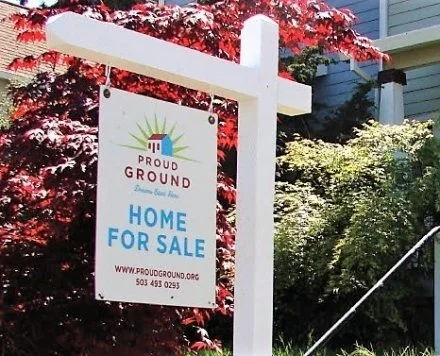Housing
Housing
Housing is key to workforce attraction in eastern Oregon.
Any discussion of workforce development eventually leads to a common challenge facing our communities across eastern Oregon - the shortage of housing. Communities rely on quality, affordable housing to attract new residents and retain families who have called the state home for decades. With an aging housing stock and a lack of affordable options, rural eastern Oregon risks losing residents and workforce.
Northeast Oregon Economic Development District (NEOEDD), the Eastern Oregon Workforce Board (EOWB), and the REV are currently collaborating to host a series of events to inform, inspire and take action toward resolving shortages of suitable workforce housing in the region.
Responding strategically to housing needs
In partnership with industry and business, local government, and nonprofit organizations, we work to help communities assess their readiness for housing, determine the cost and benefit of new housing units, and plan for next steps. This includes: the gathering of housing market data resources, quality-of-place inventory, guiding vision, local government zoning and planning information, tax models to help communities determine the cost and benefit of new housing units, and a site identification guide, among other resources.
Get Involved
Sign up to receive notices about our upcoming housing meetings.
To view past meetings, scroll through past events listed below.
Guest speaker Jennifer Sherman, sociologist, delved into the insights of her latest book, Dividing Paradise: Rural Inequality and the Diminishing American Dream during a discussion at Eastern Oregon University.
In her research, Sherman explores the disparities within a community in Eastern Washington, shedding light on the impact of late-stage capitalism attempting to reshape rural America. The resistance against this transformation is significant, particularly in small-town economies that historically relied on logging, mining, farming, and ranching.
These communities now face a shift towards dependence on tourism, second-home ownership, and retirement migration. Within "Dividing Paradise," Sherman narrates the tale of "Paradise Valley," a pseudonymous representation of the Washington community under scrutiny. The book unravels how amenity-driven economic growth led to a new social landscape marked by inequality and privilege, creating profound divisions between long-time residents and newcomers. The narrative exposes the phenomenon of "class blindness," where privileged newcomers often overlook or rationalize their impact on these towns, concealing the sentiments of anger, loss, and disempowerment experienced by the established locals.
Monthly Workforce Housing Speakers
April 22, 2024
MICHAEL ANDERSEN, Director of Cities and Towns with Sightline Institute
JULIA METZ, Catholic Charities’ Community Development and Housing Manager
Housing Every Oregonian: What should the state's upcoming housing needs rulemaking do for housing in Eastern Oregon?
Jan. 15, 2024
July 31, 2023
GLENDA MOYER, Fair Housing Council of Oregon
Glenda Moyer discussed fair housing laws and their application to different housing providers. Topics addressed included: diversity, equitable housing, federal and state statutes, frontier/rural counties and homelessness, and housing challenges.
BENJAMIN BERGENER, City Manager of Stanfield, Oregon
Benjamin Burgener has worked on understanding the unique needs and challenges faced by Stanfield. By recognizing and addressing these issues, he aims to create a more sustainable and vibrant community.
JACKIE KEOGH, KOR Community Land Trust
Keogh discusses KOR Community Land Trust's workforce housing project. Based in Bend, the organization provides communities of permanently affordable, single-family family-sized homes designed to net-zero energy standards.
CLAYTON CROWHURST, Northwest Housing Alternatives
Clayton Crowhurst with Northwest Housing Alternatives engages in a discussion on combining housing development with services such as childcare, health services, event programming, and employment support fostering healthier, happier communities. View the Master Planning for Community Building discussed in this session.
HOLLY KERNS & MADISON TOMAC, Baker City-County Planning Department
Holly Kerns and Madison Tomac discussed public engagement to inform housing plans and policy. Following the Housing Needs Analysis performed in 2022, the Housing Production Strategy is a list of specific tools, actions, and policies Baker City plans to take to address the housing the city needs, complete with timelines for adopting and implementing each strategy. It identified the current housing needs of Baker City needs and projects what will be needed up to 20 years in the future.
Aug. 28, 2023
Nov. 20, 2023
Oct. 23, 2023
Session 1
September 28, 2021
Five panelists share solutions to workforce housing shortages in rural communities. Presentation slides are provided where linked below.
Curt Berger - Columbia Basin Student Homes
Gust Tsiatsos - GCT Land Management,
Veterans Village slideshowKatie Ullrich - Proud Ground
Nick Green - City of John Day,
Growth & Incentives slideshowJason Dietz -
Summit County, Colorado Workforce Housing slideshow
WORKFORCE HOUSING SOLUTIONS WEBINARS
Session 2
July 7, 2022
Five panelists share solutions and information relevant to rural communities in Oregon.
Patrick Wingard - Department of Land Conservation and Development, Housing Planning in Oregon slideshow
Clayton Crowhurst - Northwest Housing Alternatives,
Intersection Points: Affordable and Workforce Housing slideshowPaula Hall - Community Action Program of East Central Oregon (CAPECO)
Caryn Appler - Energy Trust of Oregon,
Regional Eastern Oregon Workforce Discussion slideshowDrew Davis - USDA Rural Development,
Your Partner in Buying a Home slideshow
Monthly Meeting Summaries / Audio Files
Tiny House for Teachers
September 19, 2022
Regional Workforce Housing Team Meeting
Jennifer Martin, Malheur ESD representing the Eastern Oregon Regional Educator Network, shared about their Tiny House for Teachers project. They have a RARE member, Willow Ryon, working with them this year to develop the idea which aims to provide teacher housing as well as Construction CTE coursework at some of our very rural K-12 schools.
Regional Workforce Housing Team:
We meet regularly online. Join us to share updates and learn about regional projects.
///
NE Oregon Workforce Housing Collaborative:
Find out what is happening in your area.
///
Workforce Housing Actions Workshop:
On October 5, 2021, teams in Baker, Union, Wallowa, and Morrow Counties met to develop priorities and take action toward resolving housing issues. These groups continue to work together to implement planned actions.
///
We employ the use of Strategic Doing in our workshops. “Strategic Doing teaches people how to form collaborations quickly, move them toward measurable outcomes and make adjustments along the way. In today’s world, collaboration is essential to meet the complex challenges we face.”
Get involved
RESOURCES
This program provides real-world application, exposure, and opportunity to the student population in the Columbia Basin region. They produce one custom, modern, energy efficient student built home during the school year in a two block class time frame.
Aspen Pitkin County Housing Authority
Strengthening Community Through Workforce Housing. The goal of APCHA is to provide affordable housing opportunities through rental and sale to persons who are or have been actively employed or self-employed within Aspen and Pitkin County, and that provide or have provided goods and services to individuals, businesses or institutional operations, within Aspen and Pitkin County (prior to retirement and/or any disability), and other qualified persons as defined in these Regulations, and as they are amended from time to time.
Community Land Trusts are used across the country in both rural and urban settings to create and preserve affordable housing in perpetuity. Proud Ground has provided permanently affordable homeownership opportunities using the CLT model for 20+ years and currently stewards close to 400 homes in our five county service area.
Headwaters Economics Housing Costs Analysis
Forty-five percent of Americans (144 million people) are living in places where housing price increases during the pandemic are unprecedented. This analysis shows that communities across the country, in every state, are grappling with housing prices increasing at a rate that has not been seen before, even during the housing bubble that led to the Great Recession.
A community organization that provides homeownership opportunities to residents in SE Washington and NE Oregon whose needs are not met by the traditional housing market.
Equitable Housing Initiative Fact Sheet
The private market typically provides new housing for households above 80% of median family income; public subsidies tend to be targeted at households earning less than 60%. This fact sheet comes from Metro’s Equitable Housing Initiative at www.oregonmetro.gov









